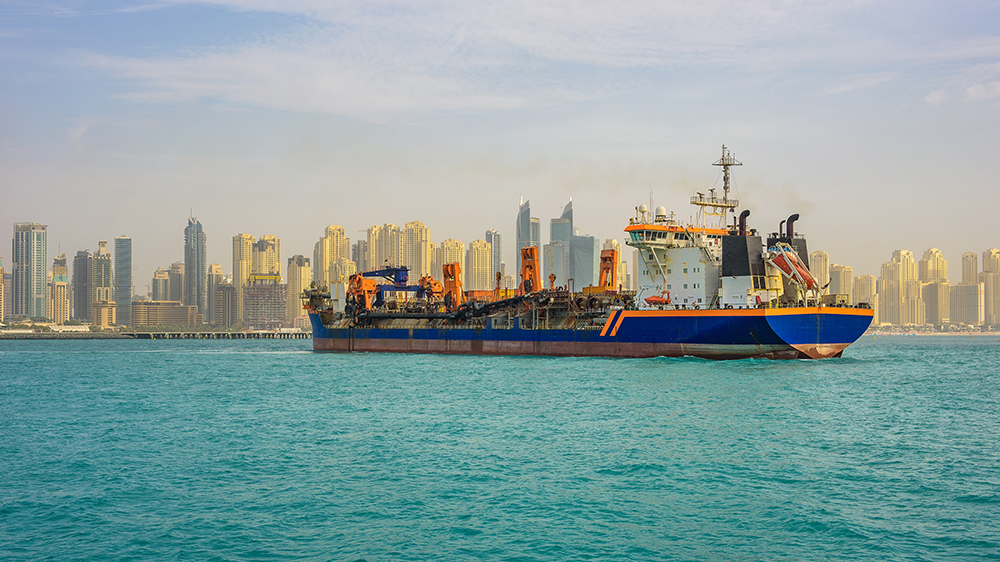About the project
This Thematic Research Group (TRG) studies how governments and society in oil-exporting countries respond to the prospect of a transition towards renewable sources of energy.
- Are there similarities across different geographical, social, and political contexts?
- Do states and civil society face analogous conflicts of interest when confronting «the green shift»?
- Are there common experiences and lessons to be learned in terms of building support for necessary policy measures to adapt to a global green shift as well as a changing climate?
The research group aims to explore these questions through a comparative study of public discourse on energy transition and climate change in three oil-exporting countries: Norway, Kuwait and the the United Arab Emirates (UAE).
Aim
These three countries are among the world's largest producers of oil and gas, they have small populations of citizens, and advanced welfare states.
Beyond that, there are important differences between them in the availability of renewable energy sources, and governance systems. While Norway is a highly functional democracy, Kuwait has a semi-democratic political system and UAE is an autocratic monarchy.
The three countries have all ratified the Paris Agreement, and they have all pledged to extend their countries' oil and gas extraction far beyond the limits allowed by the Paris Agreement to avoid catastrophic climate change.
The research group will analyze the following:
- Which differences and similarities can be detected in these oil-states' political discourses on the way forward?
- How do they inhibit necessary climate action at this critical juncture in international climate negotiations?
Dominant discourses determine what is excluded and included and legitimize political action – or non-action. Analyzing dominant and alternative discourses is a way of deciphering these mechanisms and create consciousness about political alternatives to the status quo.
Cooperation
- UiO:Energi
Financing
UiO:Energi
Duration
01.09.2020 - 01.06.2024.
Selected publications
-
Pepe, Teresa (2023). "Climate change and the future of the city: Arabic science fiction as climate fiction in Egypt and Iraq.” Middle Eastern Literatures. ISSN 1475-262X. doi: 10.1080/1475262X.2023.2252774.
-
Sviland, Lisa (2023) "Den kuwaitiske klima(dis)kursen." Babylon: Nordisk tidsskrift for Midtøstenstudier, 22 nr. 1, 120-33.
Conferences and working papers
- "Midtøsten: Er det egentlig et grønt skifte?" Presentations by Teresa Pepe, Albrecht Hofheinz, Mathilde Becker Aarseth and Brynjar Lia. Seminar at Domus Bibliotheca, Universitetet i Oslos dialog- og formidlingsarena. 28 November 2023.
- “Climate Change and the Future of the City in Contemporary Arabic Dystopian.” Lecture by Teresa Pepe. 2023 Fall Lecture Series, Middle East Studies Program at the University of Wisconsin-Madison, 6 November 2023.
- "Climate Change and the Green Shift in the Middle East." Panel at Nordic Society of Middle Eastern Studies (NSMES), Reykjavik, 23 September 2022. Presentations by Teresa Pepe, Albrecht Hofheinz and Brynjar Lia.
- “Discourses on the Green Shift and Climate Change in Norway and the Gulf.” Presentation by prof. Brynjar Lia at UiO:Energy Forum 2021, Oslo, November 24th, 2021.
- “‘Greening the Middle East’: Discourses on climate change and the a green shift in the MENA region.” Nordic Society of Middle Eastern Studies (NSMES), Helsinki14-16 august 2019. Participants: Albrecht Hofheinz, Brynjar Lia, Jon Nordenson and Tilde Rosmer.
